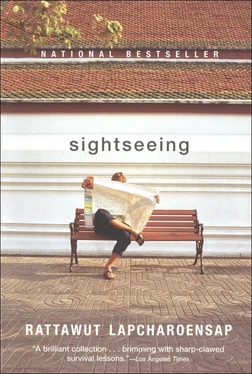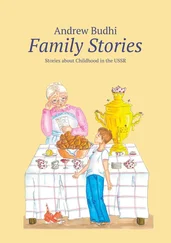Father blamed the rats on the refugees. He said they always brought vermin with them. “It’s no wonder about the rats,” he said one night when some of the men in the development came over for drinks. “Those people shit and piss wherever they please. You can’t have people shitting and pissing wherever they please and not expect to have rats.”
The men nodded along, passed around a flask of rye. Dong’s father was there as well. I brought over a tray full of Heinekens and a pail of fresh ice for the men while Mother sat in the kitchen getting angry at the checkbook.
“They’re probably raising them,” one of the men said. “Cambodians probably think rats are a delicacy.”
“Cambodians,” somebody else scoffed. “They’re the real rats, if you ask me.”
I poured the men their beer, emptied the ashtray into a plastic bag. Father put his hand on my shoulder. “This is my boy,” Father said, shaking my shoulder vigorously. “This here’s our future. This is who we’re fighting for.”
The men nodded drunkenly along. A chill passed through my body right then. I wanted to tell the men that the refugees had built a proper outhouse hidden discreetly behind a hedge. I wanted to tell them that they didn’t shit and piss indiscriminately like Father had said. I wanted to tell them about Priscilla and her mother. But I didn’t think the men would appreciate these revelations.
I woke up late that night to the sound of their high, excited voices. I got out of bed and watched them standing around my father in the yard, nodding their heads in unison. Somebody arrived with a pickup truck and the men climbed in, their deep, drunken voices murmuring up to my window. They left their empty bottles on the straw mat in our yard, and for some reason I thought about how Mother and I would have to pick up the mess in the morning. The truck puttered down the street, the men chanting now, as if working up the courage to do something valiant. I walked down the stairs with my heart in my mouth. I threw on my rubber slippers, started running into the night, down the street and out toward the railroad tracks.
Halfway there, winded from running, I saw all I needed to see. The men were torching the Cambodian shantytown. A light red glow bloomed at the end of the development’s main street, like a second sun rising in the night. I heard gruff, exasperated voices, the high-pitched screams of women. Something exploded. Glass shattered. Somebody yelled profanities. I stopped walking then and sat cross-legged in the middle of the street. I watched a rat scuttle into a sewer grate, appear once more to forage for food. Watching that awful red flickering in the distance, I felt so weak and dizzy that if the rats had emerged to eat me alive I couldn’t have done a thing to stop them.
I don’t remember walking home. But I must have, because I woke up in my own bed the next morning, head throbbing with pain. I thought I was losing my mind. I tried to convince myself that I had dreamt the previous night’s events, but when I embraced Father that morning he reeked of smoke and gasoline.
I went to Dong’s house immediately after breakfast. I tried to tell him about it, but Dong stopped me halfway and said he already knew. He told me his father had also smelled like gasoline. He said all the fathers in our development smelled like gasoline this morning.
“It happens,” Dong said. “What can you do? They had it coming. It was only a matter of time. My pa said it wasn’t even their land. He said you can’t live for free like that, it’s really not fair to the rest of us.”
“What about Priscilla?”
“What about Priscilla?” Dong repeated. “She’ll be fine. She’s a survivor.”
“I can’t believe this,” I said. “I can’t believe I’m best friends with a fat, knock-kneed asshole.”
“Hey,” Dong said. “Watch it, fucker.”
Then he turned around and went back inside the house. I stood there gaping at his front door, shaking with fury. I didn’t know what to do. I wanted to hurt him. So I went over and took his bike from the yard. Dong screamed at me from his window but I was already pumping away at the pedals, racing toward what was left of the shantytown to find Priscilla and her mother.
Bits of ash swirled around the railroad tracks. A thin veil of smoke hung in the air, stinging my eyes. When I arrived, it was as if the Cambodians’ shanty had never existed. There wasn’t a shack left standing. The ground smoldered with blackened sheets of tin. Their herb garden, too, had been razed. All the Cambodians stood around picking through the rubble, muttering to one another quietly in the early morning sun. Fortunately, some of their possessions had been saved; they piled bags and belongings together on a small patch of clean ground. Nobody looked particularly panicked. Nobody seemed particularly sad. It was as if they’d expected the fire. But nobody acknowledged me when I arrived.
Priscilla stood with her mother next to the Cambodians’ stuff. The other women milled around them waving smoke from their faces. Her mother sat on a knapsack and stared at the rubble, a bored look on her face. She seemed to look right through me at first, but then she nodded seriously. Priscilla smiled when I arrived. She had dark rings around her eyes and her face was blackened from the fire, like somebody had smeared it with charcoal. “Hey,” she said. “Hey,” I said, panting, throwing Dong’s bike to the ground. “This really sucks, girlie.”
She told me that nobody had been particularly hurt. She and her mother hadn’t lost too much. The golden tooth, the Presley album, the picture of Priscilla’s father — all had survived the fire, though they’d have to find a new pallet to sleep on. Priscilla said the men had come banging on their houses with sticks last night, told them to get out before they burned them alive in their shacks. I listened, nodded along, tried to look like she was telling me something I didn’t already know.
I told her I was glad she and her mother weren’t hurt, but I could barely look at her. Priscilla shook her head and said the same thing had happened at the last place they’d squatted. Just like Dong, she told me it was only a matter of time. She said it could’ve been a lot worse.
“We’re leaving,” she said finally. “We’re going. I’m gonna miss you guys.”
She looked at Dong’s bike and asked me where he was. I told her he was sleeping. I invited Priscilla to the half-finished pool one last time. She asked her mother if she could go and her mother nodded silently, told Priscilla to be back in an hour. Before we left, I went up to Priscilla’s mother and apologized. It seemed I was always apologizing to that short, flat-faced woman. It seemed, too, that I’d never be able to apologize enough. “I’m very sorry about your house,” I said in Thai, and once more Priscilla’s mother slapped me on the back of the head, smiled widely out of that omelet face. “Hairy Beaver,” she answered in Thai. “Dickwad. Fuckface.”
We didn’t do much at the pool that morning. We just sat around with our feet dangling off the edge chatting about this and that, the weather getting hotter and hotter. If we lived in a better world, I would’ve ridden that bike off the diving board and landed perfectly in the deep end for Priscilla. She could’ve remembered me by that. But it didn’t feel like a morning for bike tricks; it didn’t feel like a morning for clowning around. Priscilla was tired, uncharacteristically quiet. She hadn’t slept all night. Another incisor was coming out. She showed me, nudged it lightly with a finger, the golden tooth wobbling to and fro on her short pink gums. I stared at it transfixed because I knew that this would be the last time I’d peer into Priscilla’s golden mouth.
Читать дальше











